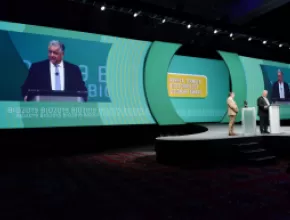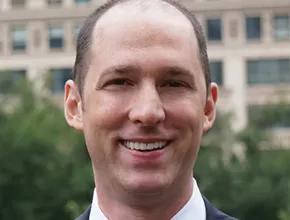Some planners have been confusing the Sunshine Act with the voluntary PhRMA Code. “The Sunshine Act is strictly for reporting how much companies have spent on each physician and teaching hospital,” says Rosaelena Ledesma-Bernaducci, CMP, congress manager for McVeigh Associates LLC, a company specializing in strategic meetings management.
Still, because of the PhRMA Code, for the past decade Hyatt—along with Starwood, Hilton, Marriott and other major brands—has worked with pharmaceutical planners to adhere to compliance requirements, customize programs and find appropriate properties for external meetings that aren’t blatantly luxurious yet still appeal to the physician clientele.
Hoteliers can further help planners adhere to the PPSA guidelines by coming up with new ways to save and by providing increasingly detailed expense information.
“I’ve been educating our hotels [about PPSA] so they know what to expect,” says Bonnie Weiss, director of pharmaceutical industry sales for Hyatt Hotels Corp., and director of membership for the Medical Meeting Professionals Association. “Each company has its own compliance guidelines, and everyone is being cautious with external meetings. Costs are an important part of these events, but type of property, menus and the room type are equally as important.”
Weiss notes that planners have begun to request group food and beverage costs on individual folios so they can see what was spent on each guest. She’s also noticed trends toward holding physician meetings at airport hotels in hub cities, a shortening in their lengths, and an increase in regional as opposed to national meetings.
“Whenever physicians are involved, everything needs to be much more detailed and budget-conscious, yet they need to be taken care of,” says Andrea Caputo, director of global accounts for HelmsBriscoe, who recently planned a meeting for a medical device client at The Waterfront Beach Resort, a Hilton Hotel, in Huntington Beach, Calif.
“We’ll create special menus by working backwards from a planner’s budget, and we’ll customize all the billing and separate banquet details and charges, as well as break out recommended vendors’ charges so the planner isn’t getting multiple invoices,” says Carmela Buenrostro, sales manager for the Southern California property. “We don’t want the planner to be stressed out.”
Other hotels that have adapted to the needs of physician-attended meetings include the Hyatt Regency O’Hare, the Grand Hyatt DFW, the Westin Copley Place Boston and the Sheraton Phoenix. Also noting the trend of using airline hub cities, AMI’s McNeil likes the Hyatt Regency Scottsdale Resort and Spa at Gainey Ranch and especially the Westin Detroit Metro Airport, adjacent to the new airport. “It’s a beautiful facility and there are no ground costs, you can walk to the hotel, and you can easily fly physicians in and out,” he says.
Recommended Reading
Experts say planners should make sure their companies have standard operating procedures (SOPs) in place around PPSA compliance, and they need to communicate with suppliers about expectations. Ledesma-Bernaducci suggests reading PolicyMed.com, a blog that comprehensively covers PPSA and related Sunshine Act compliance issues, setting up a Google Alert and looking for webinars on the topic.
“Know the criteria, don’t be afraid to ask questions and do your due diligence,” Keilty says. “Get everything in writing, make checklists, log it. Randomly audit your own programs.
“Have an archive, so when called upon, you have the information ready,” she adds. “If you can’t produce it, it’s only going to cost time and money.”




